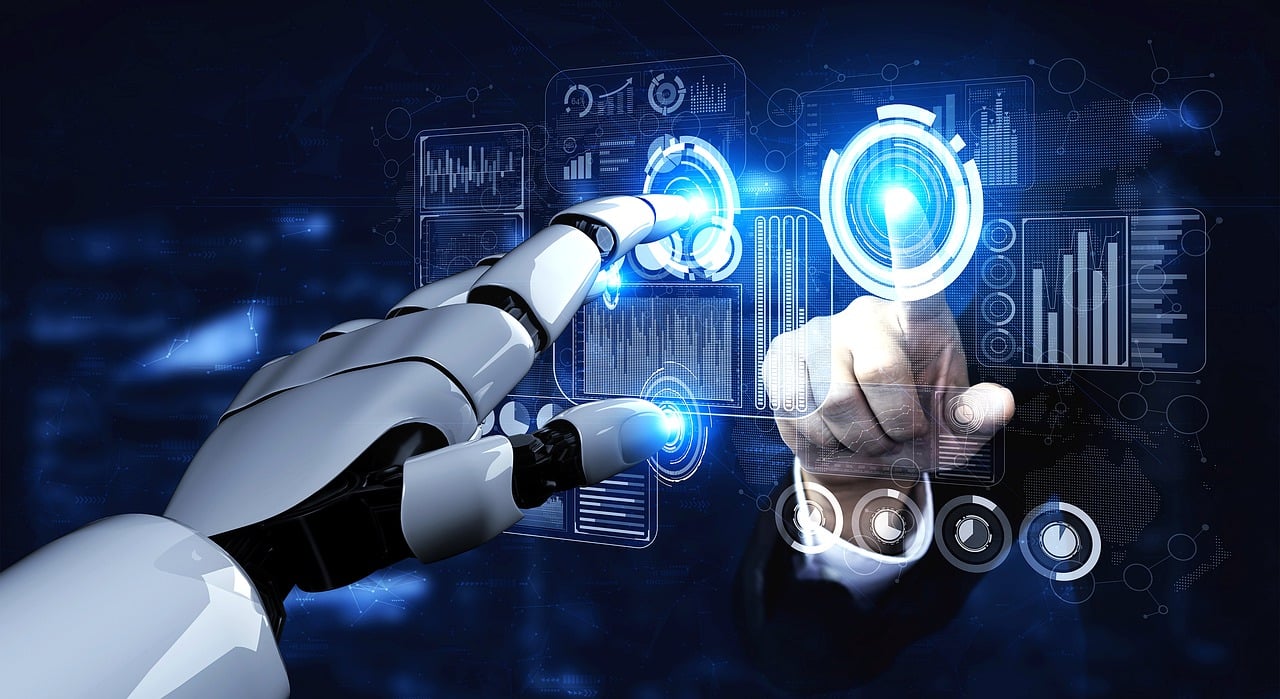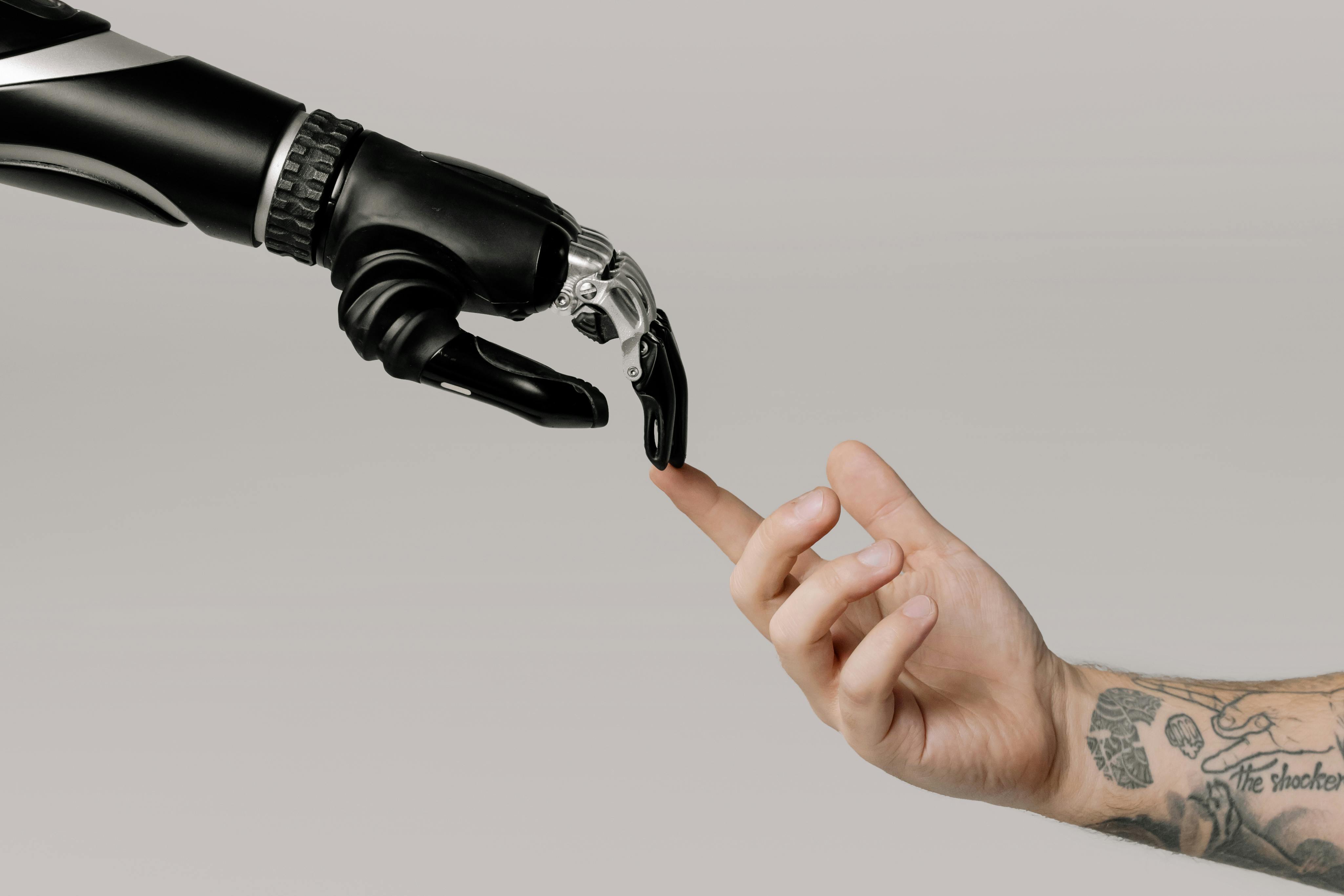
In today's rapidly evolving business landscape, it is imperative for companies to future-proof their workforce by equipping employees with essential AI skills. With artificial intelligence (AI) emerging as a key driver of innovation, businesses that embrace this technology gain a competitive edge in efficiency, productivity, and customer experience. Navigating the world of AI can be daunting, but it doesn't have to be. In this article, we will explore the crucial AI skills that every business needs to succeed in the digital age. From machine learning and data analysis to natural language processing and automation, these skills empower individuals to harness the power of AI and drive meaningful change within their organizations. By investing in AI training and fostering a culture of continuous learning, businesses can unlock the full potential of their workforce. Whether you are a small startup or a multinational corporation, understanding and developing AI skills is essential for staying ahead in the ever-changing landscape of technology.

Stay tuned to discover the essential AI skills that will future-proof your workforce and propel your business to new heights of success.
Future-Proof Your Workforce: Essential AI Skills Every Business Needs
The importance of future-proofing your workforce
In today's rapidly evolving business landscape, the ability to adapt and stay ahead of the curve is crucial for long-term success. The rise of artificial intelligence (AI) has transformed the way we work, disrupting traditional industries and creating new opportunities for innovation. As AI continues to reshape the business world, companies must prioritize future-proofing their workforce to remain competitive and relevant.
Future-proofing your workforce involves equipping your employees with the essential skills and knowledge required to navigate the AI-driven future. By investing in AI training and fostering a culture of continuous learning, businesses can empower their teams to harness the power of this transformative technology and drive meaningful change within their organizations.

This not only enhances efficiency and productivity but also positions the company as a forward-thinking leader in its industry.
Moreover, future-proofing your workforce is not just about technical skills; it also encompasses the development of non-technical abilities, such as ethical decision-making and adaptability. As AI systems become more advanced and integrated into various business functions, it is crucial for employees to understand the ethical implications of this technology and make informed decisions that align with the company's values and the greater good of society.
By embracing the essential AI skills outlined in this article, businesses can future-proof their workforce and position themselves for long-term success in the digital age. Whether you are a small startup or a multinational corporation, the ability to leverage AI effectively can provide a significant competitive advantage and drive sustainable growth.
br/>
Essential AI skills for businesses
As businesses navigate the ever-evolving landscape of artificial intelligence, it is crucial to identify the essential AI skills that will future-proof your workforce.

These skills span a wide range of disciplines, from technical expertise to strategic decision-making, and are crucial for unlocking the full potential of AI within your organization.
At the core of these essential AI skills are the technical competencies required to work with and develop AI systems. This includes proficiency in machine learning, data analysis, and natural language processing (NLP). Employees with these skills are equipped to extract insights from vast amounts of data, train and optimize AI models, and automate various business processes to improve efficiency and productivity.
Beyond the technical skills, businesses must also cultivate non-technical AI skills, such as ethical decision-making and strategic thinking. As AI systems become more advanced and integrated into various business functions, it is crucial for employees to understand the ethical implications of this technology and make informed decisions that align with the company's values and the greater good of society.

Additionally, the ability to effectively communicate and collaborate with cross-functional teams is essential for successful AI implementation. Employees who possess strong interpersonal skills, adaptability, and a willingness to learn can help bridge the gap between technical experts and business stakeholders, ensuring that AI solutions are tailored to the specific needs of the organization.
By investing in the development of these essential AI skills, businesses can future-proof their workforce and position themselves for long-term success in the digital age. Whether you are looking to streamline your operations, enhance customer experience, or drive innovation, the mastery of these skills will be a key differentiator in the competitive landscape.
br/>
Understanding the essential AI skills
To future-proof your workforce, it is essential to understand the specific skills that are in high demand and crucial for success in the AI-driven business landscape.

Let's dive deeper into the essential AI skills that every business should prioritize.
Machine Learning and Data Analysis: At the heart of AI lies the ability to learn from data and make informed decisions. Employees with expertise in machine learning and data analysis are equipped to extract valuable insights from vast amounts of information, train and optimize AI models, and make data-driven decisions that drive business growth.
These skills involve understanding statistical methods, algorithms, and programming languages like Python and R. Proficiency in data preprocessing, feature engineering, model selection, and performance evaluation are all crucial for leveraging the power of machine learning effectively.
Natural Language Processing (NLP): As businesses increasingly rely on text-based data, such as customer feedback, social media interactions, and internal communications, the ability to understand and extract insights from this unstructured information becomes paramount. Employees with NLP skills can develop AI-powered solutions that automate tasks like sentiment analysis, language translation, and chatbot development, enhancing customer experience and operational efficiency.

NLP skills encompass techniques like text mining, language modeling, and neural networks, as well as familiarity with tools and frameworks like NLTK, spaCy, and Transformers.
Automation and Optimization: AI-powered automation and optimization can revolutionize business processes, from streamlining repetitive tasks to optimizing complex workflows. Employees with expertise in these areas can leverage AI to automate mundane activities, freeing up time and resources for more strategic initiatives.
This skill set includes understanding robotic process automation (RPA), computer vision, and reinforcement learning, as well as the ability to identify and optimize business processes for maximum efficiency.
Ethical Considerations and Decision-Making: As AI systems become more advanced and integrated into various business functions, it is crucial for employees to understand the ethical implications of this technology and make informed decisions that align with the company's values and the greater good of society.

Employees with strong ethical decision-making skills can navigate the complex landscape of AI governance, ensuring that AI-powered solutions are developed and deployed in a responsible and transparent manner. This includes understanding principles like fairness, accountability, and transparency, as well as the ability to identify and mitigate potential biases and risks.
br/>
Non-technical AI skills: Ethical considerations and decision-making
While technical skills are undoubtedly crucial for leveraging the power of AI, non-technical skills are equally important for future-proofing your workforce. As AI systems become more advanced and integrated into various business functions, it is essential for employees to understand the ethical implications of this technology and make informed decisions that align with the company's values and the greater good of society.
One of the key non-technical AI skills is ethical decision-making. Employees with this skill set can navigate the complex landscape of AI governance, ensuring that AI-powered solutions are developed and deployed in a responsible and transparent manner.

This involves understanding principles like fairness, accountability, and transparency, as well as the ability to identify and mitigate potential biases and risks.
For example, consider a scenario where an AI-powered hiring system is used to screen job applicants. Employees with ethical decision-making skills would be able to assess the system for potential biases, ensure that the selection criteria are fair and unbiased, and implement measures to maintain transparency and accountability throughout the hiring process. By doing so, they can help the organization avoid unintended consequences and uphold its commitment to diversity, equity, and inclusion.
Another critical non-technical AI skill is adaptability and lifelong learning. As AI technology continues to evolve rapidly, employees must be willing to continuously update their knowledge and skills to stay ahead of the curve. This may involve attending training programs, participating in industry events, or engaging in self-directed learning to keep pace with the latest AI trends and best practices.

Adaptability also extends to the ability to work collaboratively with cross-functional teams. Successful AI implementation often requires the integration of technical expertise with business acumen and strategic thinking. Employees who can effectively communicate with stakeholders from different backgrounds, understand their needs, and translate technical solutions into business outcomes will be invaluable in driving the successful adoption of AI within the organization.
By fostering a culture of ethical decision-making, adaptability, and collaborative problem-solving, businesses can empower their employees to navigate the complex world of AI with confidence and integrity. These non-technical skills, combined with the essential technical competencies, will be the foundation for future-proofing your workforce and positioning your organization for long-term success in the digital age.
br/>
Upskilling your employees: Training programs and resources
To future-proof your workforce and equip your employees with the essential AI skills, it is crucial to invest in comprehensive training programs and provide access to a wide range of resources.

By proactively upskilling your team, you can ensure that your organization is well-positioned to leverage the power of AI and stay ahead of the competition.
One effective approach to upskilling your employees is to implement structured training programs that cover the core AI skills outlined in this article. These programs can include a combination of classroom-style instruction, hands-on workshops, and project-based learning opportunities. By providing a mix of theoretical knowledge and practical application, you can help your employees develop a deep understanding of AI concepts and their real-world applications.
For instance, you might offer a machine learning training program that covers topics like data preprocessing, model selection, and performance evaluation. Participants can then apply these skills to a practical project, such as developing a predictive model for sales forecasting or customer churn. This experiential learning approach not only enhances technical proficiency but also fosters a sense of ownership and engagement among your employees.

In addition to formal training programs, it is essential to encourage and facilitate continuous learning opportunities for your team. This can include providing access to online courses, industry-leading certifications, and self-paced learning resources. By empowering your employees to take charge of their own professional development, you can foster a culture of lifelong learning and adaptability – two crucial traits for success in the AI-driven business landscape.
Furthermore, consider establishing cross-functional collaboration and knowledge-sharing initiatives within your organization. This could involve setting up AI-focused working groups, where employees from different departments can come together to share their insights, discuss challenges, and explore innovative solutions. By breaking down silos and encouraging interdepartmental collaboration, you can accelerate the adoption of AI and ensure that your entire workforce is aligned and equipped to drive transformative change.
Investing in the upskilling of your employees is not only a strategic move for future-proofing your workforce but also a testament to your commitment to nurturing talent and fostering a competitive edge in your industry.

By prioritizing the development of essential AI skills, you can unlock the full potential of your team and position your business for long-term success in the digital age.
br/>
Conclusion
In the ever-evolving business landscape, the ability to future-proof your workforce is crucial for long-term success. As artificial intelligence (AI) continues to reshape industries and disrupt traditional business models, companies that equip their employees with the essential AI skills will be well-positioned to thrive in the digital age.
Throughout this article, we have explored the key AI skills that every business should prioritize, from technical competencies like machine learning and natural language processing to non-technical abilities such as ethical decision-making and adaptability. By understanding and developing these skills, your employees will be empowered to harness the power of AI, drive innovation, and contribute to the overall growth and success of your organization.
To future-proof your workforce, it is essential to invest in comprehensive training programs and provide access to a wide range of resources. By upskilling your team and fostering a culture of continuous learning, you can ensure that your employees are equipped to navigate the ever-changing landscape of AI and adapt to the evolving needs of your business.
Remember, the future-proofing of your workforce is not a one-time event, but an ongoing process that requires a sustained commitment to skill development and a willingness to embrace change. By staying ahead of the curve and continuously investing in the essential AI skills, you can position your business for long-term success and maintain a competitive edge in the digital age.
Don't let your workforce fall behind – take the necessary steps to future-proof your team and unlock the full potential of AI within your organization.
The rewards of this investment will be manifold, from enhanced efficiency and productivity to innovative breakthroughs that drive your business forward.
br/>
 Add Row
Add Row  Add
Add 




Write A Comment